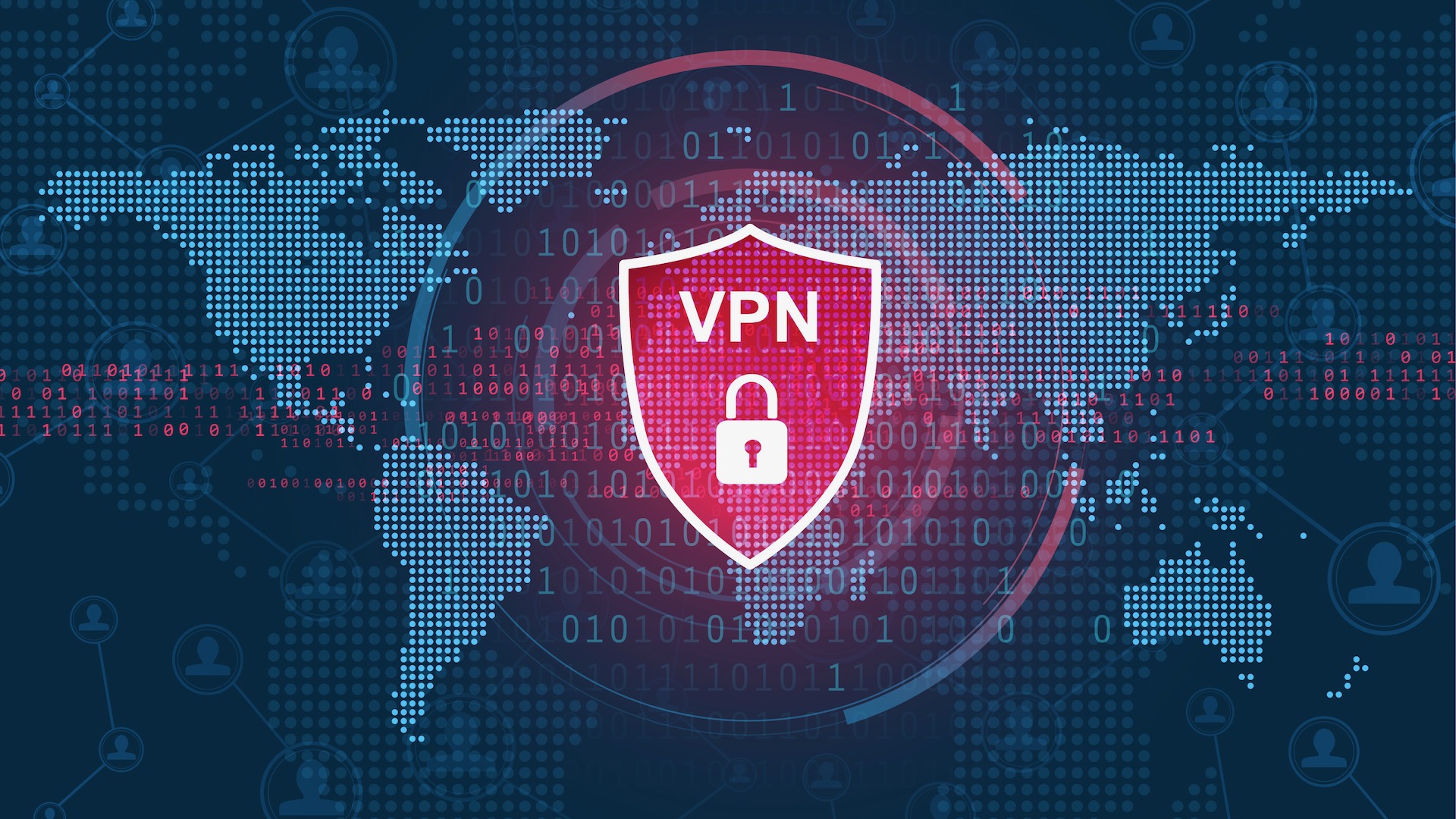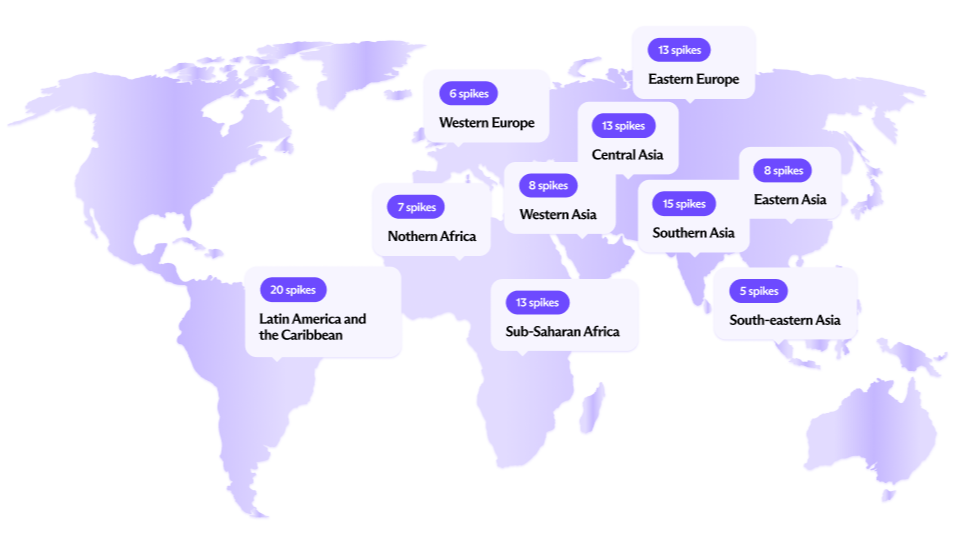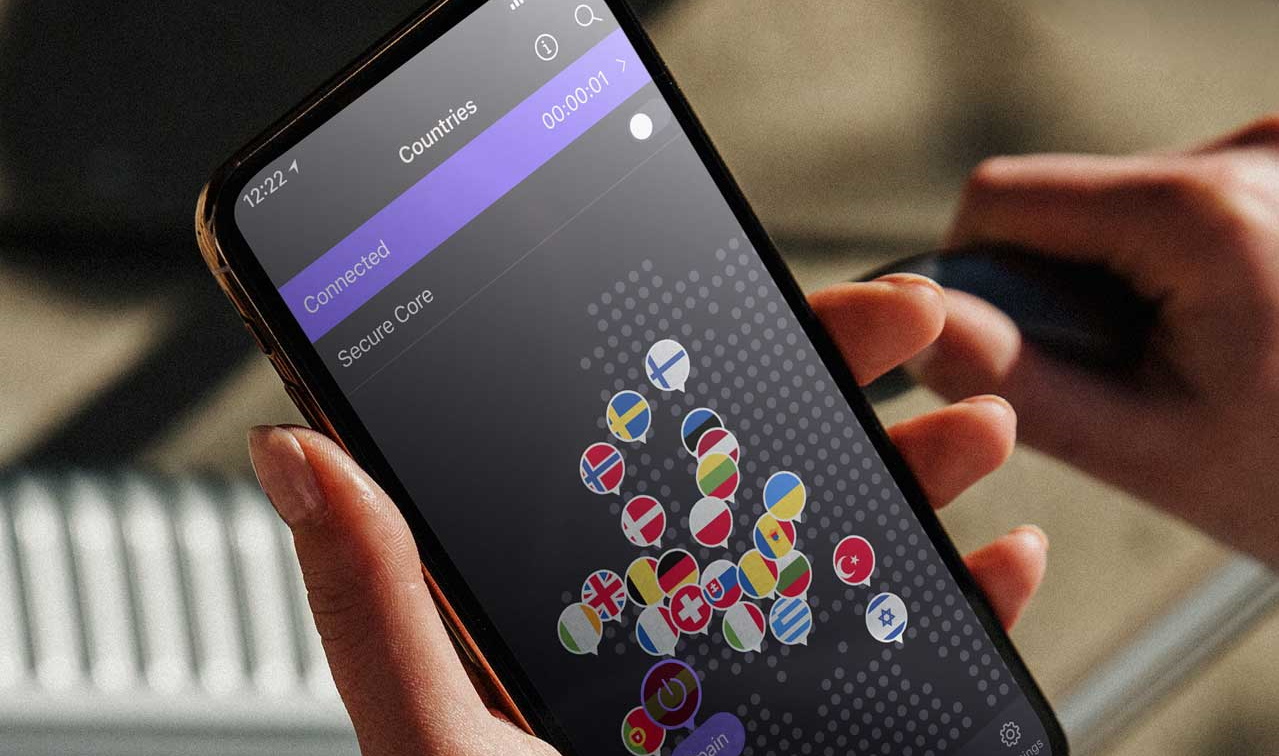119 countries saw VPN usage soar in 2024 during times of political crisis
Election campaigns were the main driving factor behind this trend

In 2024, increasingly more people worldwide turned to VPN apps to bypass internet censorship and social media blocks.
Proton VPN alone recorded a spike in usage across 119 countries. These include six countries with at least one spike in signups of over 5,000% above baseline and four with at least one spike in signups of over 10,000%.
One of the best VPN providers on the market, Proton has heavily invested in the fight against internet censorship over the years, making it one of the most popular circumvention tools for users battling against internet restrictions.
Reflecting on the findings from the company's end-of-the-year 2024 report, David Peterson, Proton VPN's General Manager, said: "Social media blocks and internet blackouts have sadly become normalized and are now viewed as simply another tool governments can turn to. VPNs give everyday citizens the ability to fight back against this encroaching censorship."
Why did people turn to VPNs in 2024?
With 64 countries across the world hosting elections last year, it's no surprise that most internet censorship and VPN usage spikes happened around these events.
These include Senegal, as authorities disrupted the internet amid protests over postponed elections in February, and Mauritius, where the social media shutdown ahead of the big day in November caused Proton VPN's largest spike amounting to 182,890% increase in signups within 48 hours, but also Mozambique, Pakistan, and Venezuela.
Our teams worked tirelessly to keep the internet lights on
David Peterson, Proton VPN
According to Peterson, the Venezuela case is one of the most striking examples. In an attempt to clamp down on protests contesting the election results, President Maduro blocked X and Signal, while even calling for a boycott of WhatsApp. Access to the Proton VPN website was also restricted as the virtual private network (VPN) app became a "lifeline for many Venezuelans."
"We observed an unprecedented demand, and Proton VPN became the most downloaded app in the country on both the Google Play and Apple App stores," Peterson told TechRadar, explaining that the team had to expand server capacity to help people in Venezuela and ensure servers were not overloaded. "Our teams worked tirelessly to keep the internet lights on."
Proton VPN even launched its election support initiative in March to offer a free network of local anti-censorship servers to all users logging in from at-risk countries two weeks before and after the big day. At the core of Proton's election support initiative was Proton's very own Smart Routing technology. This allowed the provider to offer local coverage in countries where servers cannot be physically installed due to the sensitive nature of the location.
As per Proton's data, more than a million people worldwide made use of these servers to circumvent censorship and access free and fair internet in the lead-up to elections.

Not all Proton VPN spikes that occurred throughout the year were linked to election campaigns, though. As Proton's team puts it, "all kinds of crises can convince the government to censor the internet."
People in Brazil turned en masse to VPNs, for example, to evade the X ban despite the risk of being fined up to $9,000 a day. At that time, Proton recorded a spike in usage of 1840% above normal levels.
VPN usage skyrocketed in New Caledonia, too, as citizens tried to bypass the TikTok ban imposed during anti-government protests. Crucially, this case represents the very first time a Western democracy (France) has resorted to a social media shutdown to placate dissent.
Pakistan, Kenya, Bangladesh, Turkey, Myanmar, Kyrgyzstan, and even Spain are other countries where people flocked to Proton VPN in 2024 intending to bypass increased censorship.
A change in attitude
2024 was also characterized by a change in attitude among VPN users.
Instead of seeing short-term spikes following government censorship or internet blocks, Peterson explains, the team recorded more users signing up in advance of defining events like national elections.
Not only that, but people were also more and more keen to continue using VPN apps even after temporary blocks were lifted, probably in an attempt to protect themselves against potential future internet blocks. This happened, for example, in Turkey, Senegal, and Mozambique.

In 2024, Proton VPN also decided to double down on its fight against online censorship by integrating new tools and expanding existing censorship-resistant technology. Among these, Guest mode on Android – which allows users to log in without creating an account – had the most impact, dramatically increasing the number of people using its Android VPN app.
"People are also, unfortunately, getting accustomed to authoritarian regimes' heavy hand and know alternative ways to download our apps in the cases where app stores are blocked," said Peterson.
While people are getting better and better at finding ways to bypass online restrictions, governments are also moving beyond just blocking access to certain websites.
For example, authorities may block access to alternative DNS services as well as attempt to block access to VPNs themselves. The latter can occur by forcing app stores to remove the VPN apps (like in Russia, where over 60 VPN apps disappeared from the local Apple App Store last year), blocking the VPN websites directly (like in Venezuela), or using advanced technologies with network-level blocking of VPNs, such as those used in Iran, Russia, China, Myanmar, and, most recently, in Belarus.
The aim? "Trying to scare citizens away from using VPNs," said Peterson.
What's at stake for internet freedom in 2025?
With internet censorship steadily advancing in both reach and techniques, experts expect this trend to continue in 2025 as well.
"Social media blocks and internet blackouts are sadly becoming more normalized, and it's no longer just the preserve of authoritarian regimes – just last year we saw blocks in Spain, and in the French territory of New Caledonia," Peterson told Techradar.
It's with this in mind that Proton invests in censorship-resistant technologies. Back in August, in fact, the provider added support for its Stealth VPN protocol, which is designed to bypass sophisticated government censorship also for Windows. It also launched a new Discreet Icon feature for its Android app to allow users to customize the app's icon and name to make it look like another unrelated phone application.
"While our work sometimes makes headlines, it's often the projects we can't talk about, as it would put our users in danger, that we are the most proud of," said again Peterson. "To our community the world over, we just want to say that wherever there is persistent internet censorship, we are working and will keep working to provide a solution."

Chiara is a multimedia journalist committed to covering stories to help promote the rights and denounce the abuses of the digital side of life – wherever cybersecurity, markets, and politics tangle up. She believes an open, uncensored, and private internet is a basic human need and wants to use her knowledge of VPNs to help readers take back control. She writes news, interviews, and analysis on data privacy, online censorship, digital rights, tech policies, and security software, with a special focus on VPNs, for TechRadar and TechRadar Pro. Got a story, tip-off, or something tech-interesting to say? Reach out to chiara.castro@futurenet.com
You must confirm your public display name before commenting
Please logout and then login again, you will then be prompted to enter your display name.